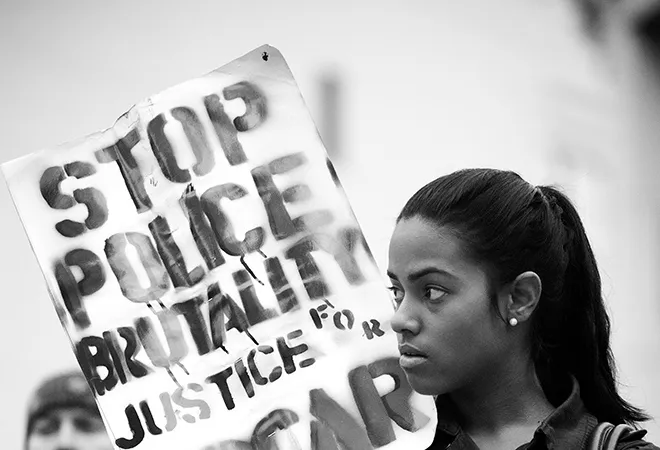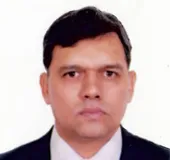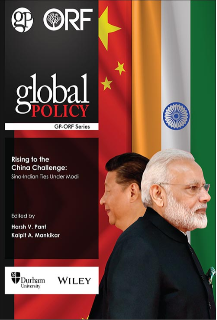
More than seventy years after Independence, India continues to be ravaged by incidents of extreme police brutality that put a civilised democratic nation to shame. The latest in the series of incidents is the death of 59-year old Jayaraj on 22 June and his 31-year-old son Bennicks on 23 June, after they were taken into police custody on 19 June 2020. It was alleged that they had kept their stores open past permitted hours during lockdown. Allegedly, policemen subjected them to unspeakable assault and torture resulting in their sad demise. Since this was a small-town incident, public outrage took time to build. As the news spread through social media, members of the state opposition took to the streets in protest; the traders pulled down the shutters of their shops and came out in condemnation of the incident; the national media aired it prominently and the High Court took suo motu cognisance of the matter. The state administration took the standard course of action — it transferred the policemen and later suspended a few and awarded a compensation to the bereaved family.
The above cited case is not an isolated incident. Since end March 2020, during the lockdown imposed on account of Covid-19, incident after incident has been highlighted in the media of policemen all over the country exceeding their brief. These excesses have comprised verbal abuse, assault, confiscation of personal goods and papers, arrest, ready award of physical punishment and custodial deaths. One need not go too far in the past and recall more gory display of brutality by the police.
Since end March 2020, during the lockdown imposed on account of Covid-19, incident after incident has been highlighted in the media of policemen all over the country exceeding their brief.
In a discussion about these incidents, one can turn around and say that such excesses happen in many other democratic nations such as the United States, where police brutality on the black community came into sharp focus after the George Floyd incident in Minneapolis. On 25 May 2020, a white police officer, Derek Chauvin, pinned Floyd down to the ground and put the weight of his knee on the victim’s neck for a full eight minutes 46 seconds till he suffocated to death.
What is more significant than the incident itself is what the US authorities did consequent to the incident. On the following day, all four police officers who had a hand in the incident lost their jobs. Two autopsies conducted on Floyd’s body declared the death a homicide. Chauvin, the main culprit, was initially charged with third-degree murder and second-degree manslaughter. Later the charge was further stiffened to second-degree murder and the three other officers were charged with aiding and abetting second-degree murder. Chauvin was then arrested. In early June, the city council of Minneapolis banned chokeholds and required police officers to intervene against the use of excessive force by other officers, and voted an intent to restructure the police department as a “new community-based system of public safety.”
In early June, the city council of Minneapolis banned chokeholds and required police officers to intervene against the use of excessive force by other officers.
This could be compared with the follow-up action in Tamil Nadu. Following the deaths, the police officers involved were transferred. As public pressure mounted, two police sub-inspectors were suspended and the police inspector of the station was put on the waiting list. The state’s information and publicity minister, Kadambur C. Raju continued to insist that the deaths were not lock-up deaths. “They did not die in the police station. They were brought before the magistrate and then they were kept in Kovilpatti sub-jail where they died. Since it happened outside the police station it cannot be considered as a lock-up death,” he said. In the interim, the Madras High Court took cognisance of the matter. The Tamil Nadu Government, thereafter, decided to hand over the case to the Central Bureau of Investigation (CBI). Finally, on 2 July, compelled by overwhelming evidence and the eyewitness account of a policewoman, five policemen were put under arrest.
Why is it that the political class in India finds it so difficult to come out on the side of its citizens despite the extreme nature of brutality allegedly perpetrated by the police? And why does it feel so compelled to be so weak-kneed against the police? And why does it think it can wriggle out of the situation without too much damage by assuaging the victim’s family through monetary compensation and offer of a job?
Why is it that the political class in India finds it so difficult to come out on the side of its citizens despite the extreme nature of brutality allegedly perpetrated by the police?
There are several angles to the answer. Firstly, Indians have suffered external domination for a millennium during which their aspirations as a free people were systematically broken. They became a subjugated people, in body and spirit, and learnt to bear repression and give in to excesses with great equanimity. For the most part of this period, the repression was carried out by the police, comprising Indians, who learnt to be equally supine in carrying out the wishes of their masters. On the side, they found it easy to impose their own wishes in the name of the rulers. The rightful roles of the police and the people thereby came to be unquestioningly recognised — the one that wielded the lathi and the other that suffered it.
Post-Independence, the political class has slipped into the shoes of the ruler with great ease and aplomb and has found complete comfort in perpetuating traditional relationships. During the lockdowns imposed during Covid-19, we have found the political masters, the police, the media and the elite come out complaining that some citizens have not behaved and need to be disciplined. The imposition of lockdowns was widely welcomed until the destruction of the livelihood of millions of people was exposed by the “march of the migrants.” Compare this with a democracy such as Sweden which issued advisories for its citizens, laying down dos and don’ts, but the police were forbidden to act even if there were breaches by the people. This is because that country values its people’s freedoms and wishes to nurture a free and proud people. The country tackled individual misdemeanours through social naming and shaming. Here, while we pay obeisance to democracy and democratic freedoms, we believe that people are stupid and unruly and need to be tutored with a heavy hand. We appreciate citizens who are respectful, sit on the floor in the presence of their masters and continue to live with a subjugated mentality. And those that dare to defy and speak out and commit such ‘hideous crimes’ as to keep their shops open beyond stipulated time limits need to be taught a tough lesson. Even death would do.
While we pay obeisance to democracy and democratic freedoms, we believe that people need to be tutored with a heavy hand.
The somewhat redeeming feature that has taken some shape since Independence is the emergence of an independent judiciary, a free media and a rising middle class. They have sought to alter the status quo. But this has not been able to travel too far beyond a small class on account of systemic problems — the legal system is much too expensive and the courts cannot deliver justice in quick time. As a consequence, action taken by the police on ground tends to be the judgment delivered for a large class of citizens. Only the rich, the powerful and the influential can protect themselves.
To top it all, past committees have repeatedly documented that a self-serving relationship has developed among the politicians, criminals and the police. The criminals lend a helping hand to politicians during elections; in return, politicians help paper over the misdeeds of criminals. And the police are happy playing the role of the ‘caged parrot’ as long as they can play their own games with the people. Democracy only demands that each dexterously cover their tracks and keep their activities within defensible limits. Where boundaries are observed, ways will be found to shelter their backs. Only in cases where limits are breached, truth comes out and too much heat gets generated, each will be left to fend for himself.
The views expressed above belong to the author(s). ORF research and analyses now available on Telegram! Click here to access our curated content — blogs, longforms and interviews.




 PREV
PREV


